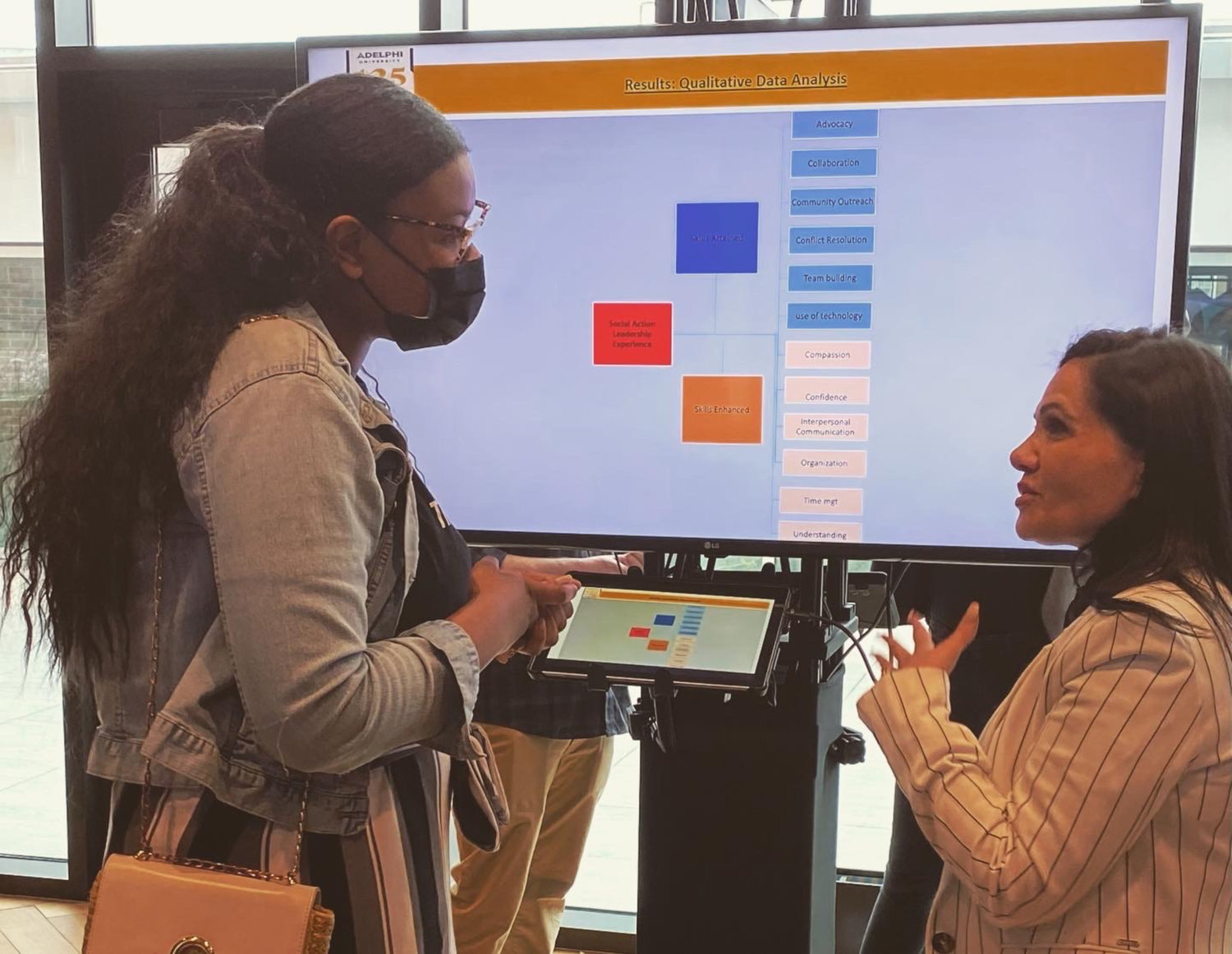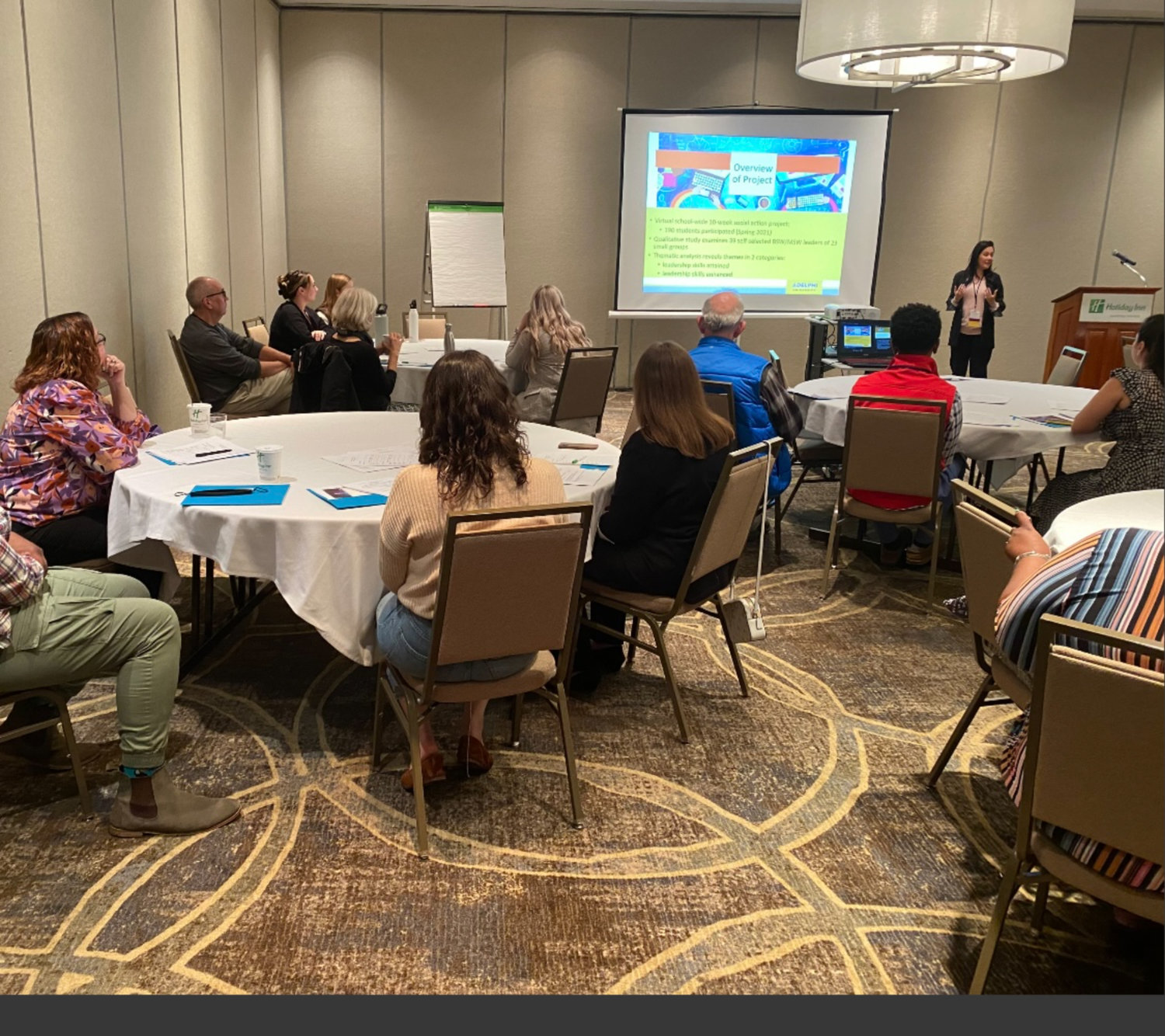Thursday, April 25, 2024
 47.0°,
Mostly Cloudy
47.0°,
Mostly Cloudy
East Meadow’s Marcella Pizzo is a leader in social work
Her research in the field aims to share the experiences of black, indigenous people of color
If you are a black, indigenous, person of color social worker, or in a leadership role in a human service organization, reach out to Marcella Pizzo at mpizzo@adelphi.edu.
This doctoral dissertation seeks to explore the lived experiences of BIPOC social work women and the complex interplay of multiple social identities, within their roles as leaders in human service organizations. While there is an increase of BIPOC women in leadership, little is known about their specific experiences. Your insight can help other BIPOC women.
All participants will be given a $20 gift card.
This research has been reviewed and approved by the Adelphi University Institutional Review Board. If you have any comments, questions, or concerns, please reach out to the IRB chair Dr. Carol Springer at: springger@adelphi.edu, or (516) 877-4753.
East Meadow resident Marcella Pizzo started her career as a high school English teacher in Brooklyn. But after seeing some of the mental hardships that these kids faced, she knew there was more important work she could be doing.
“I realized that that population of young folks, high school students specifically, were really struggling,” Pizzo said. “There was a lot of stigma around talking about it and seeking services.”
From there, she transitioned and got her master’s degree in mental health counseling from Touro College in New York in 2014. She started her practice right out of her home in 2017, mostly helping young adults and adolescents.
“I designed my practice,” Pizzo said. “I think part of social work is service, so I try not to turn anybody away. If someone calls and they don’t have insurance, I try my best to work on a sliding scale for them because I feel like I have to be accessible.”
Pizzo soon realized that she wanted to focus more on the research component of social work, and set out to get her Ph.D., which she’s been working on since 2017 at Adelphi University in Garden City. Her current research is grounded in critical feminist theory, focusing on gender inequality.
“I look at inequities in nonprofit organizations,” Pizzo explained. “I’m looking at the intersection of race and gender, and systemic oppression and leadership specifically. Right now, I’m looking at (black, indigenous people of color) female social workers as leaders of nonprofits, and examining how they got there because there’s almost no mentorship because so few of them exist.”
The latter of which is the topic of her dissertation.
Pizzo’s research is done qualitatively, meaning that the research seeks to understand the findings through real women’s experiences based on answers to the questions she gives them. The subjects are found through people she knows, and by word of mouth. What the research has found is that those women are overcoming so many obstacles to get where they want to be.
“We’re looking at (anti-racism, diversity, equity, and inclusion) initiatives because right now that’s a big thing,” she said. “Training around ADEI, and it’s not really working. It’s been unsuccessful for a myriad of reasons. What these women are saying is that there has to be buy-in from everybody at the organizational level.
“It has to be sort of this ongoing process, and ongoing conversation, and commitment — from HR, commitment from the board, commitment from the individual clinician.”
Her turn toward research was a way for her to highlight diverse voices. A lot like the nonprofit sector, the social sciences field also tends to be dominated by men doing research. “I wanted to highlight women specifically and highlight them in an organizational context,” she said. “I felt the need for a woman to get in there, and do her own sort of research.”
She attributes her passion for social justice to her time spent working in the New York City education system. “It’s a very different paradigm than working (on Long Island),” she said. “I had students that were homeless, and I realized that folks are fixated on testing, and it’s like how about focusing on how they’re not doing their homework because they’re living in a shelter.”
Once Pizzo returned to school, she found her way back to the classroom. She’s guest lectured at Hunter College in Manhattan several times, and was an adjunct professor at Stony Brook University on Long Island. She was originally a doctoral research assistant at Adelphi before switching to teaching research methods.
Pizzo’s main goal is to continue her research and wind up with a full tenure track faculty job at a university. “A university where I can conduct my research and really teach the way that I want to teach,” she said. “Social work programs afford me that because most of them, there’s a social justice and human rights lens. I then can teach the way I need to teach, I can have a real conversation about policies that may make people uncomfortable.”
Apart from working at a university, she wants to focus on her community advocacy. She’s an active member of the East Meadow community and works closely with Equity 4 LI Youth — a group that provides equity and opportunities to underprivileged youth on Long Island. She’s also a recent board member of the New York State Social Work Education Association.
One organization she hopes to give more time to is the Cedarmore Cooperation, a nonprofit in Freeport that aims to educate, elevate and empower local youth. Pizzo serves on the planning committee for the organization’s Girlz Talk program.
“It’s an incredible organization,” she said. “They’re really embedded in the community, and I think if I didn’t go the route of academia, I probably would have developed a community center. And that may still be on the horizon.”
HELP SUPPORT LOCAL JOURNALISM
The worldwide pandemic has threatened many of the businesses you rely on every day, but don’t let it take away your source for local news. Now more than ever, we need your help to ensure nothing but the best in hyperlocal community journalism comes straight to you. Consider supporting the Herald with a small donation. It can be a one-time, or a monthly contribution, to help ensure we’re here through this crisis. To donate or for more information, click here.
Sponsored content
Other items that may interest you









